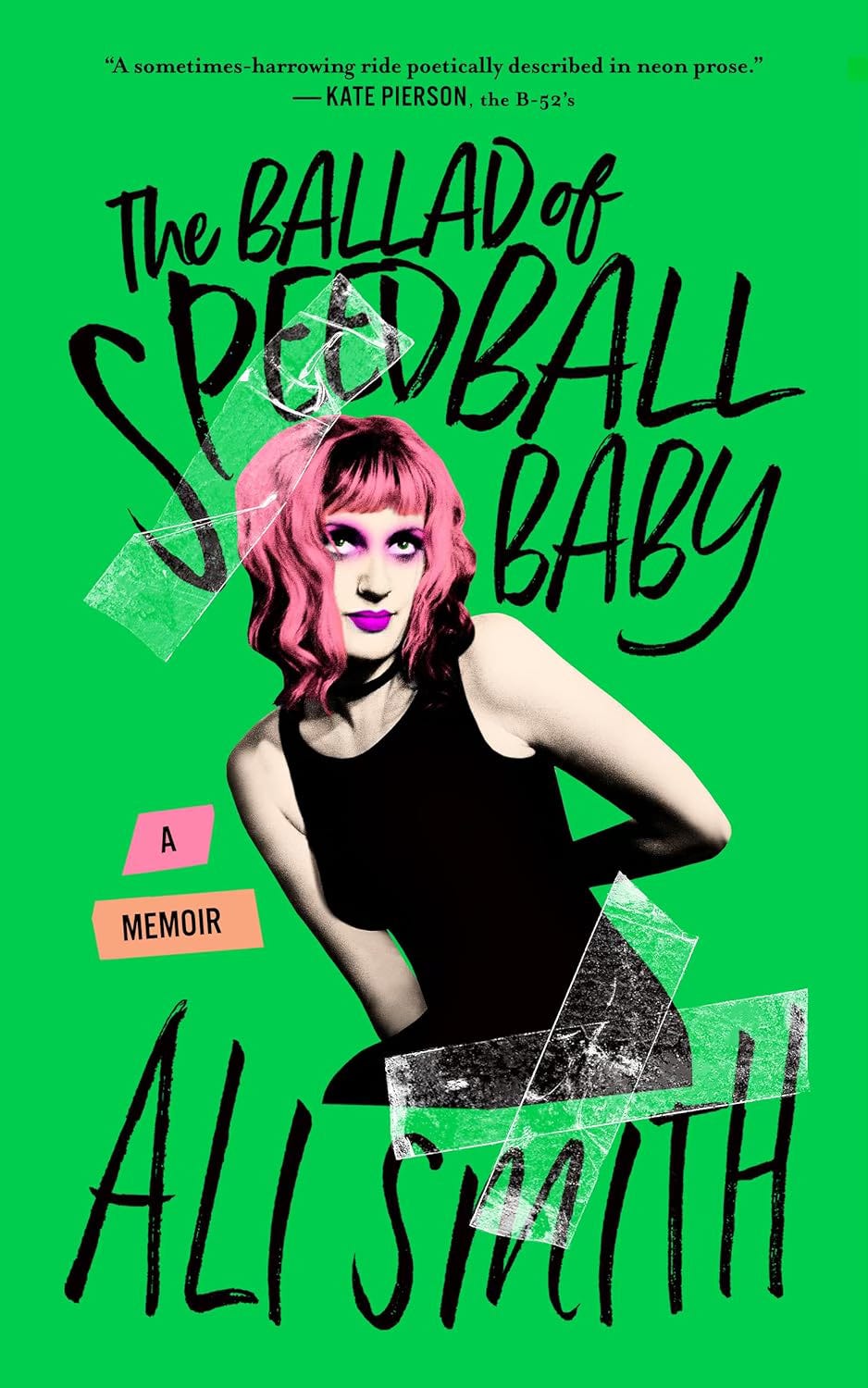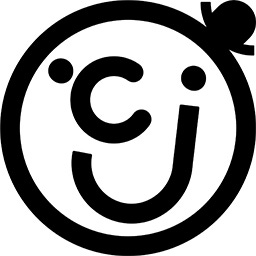This week, we welcome author and photographer Ali Smith to talk about her incredible memoir, The Ballad of Speedball Baby. We first learned about this title in our conversation with Kid Congo Powers, who later named it his favorite book of 2024!
Tamara Palmer/Music Book Club: How long did it take you to write this book, and what was your process like?
Ali Smith: It honestly took me ages. I can’t tell exactly how many years but many. My friend Miriam Shor is an actor who’s one of the originators of Hedwig and the Angry Inch. She played Yitzhak in the movie. So she and I experienced the New York underground music scene in the ‘90s from different perspectives —hers was more the LGBTQ+ club world and mine was punk — and we would trade war stories and laugh our asses off. Or we’d talk about how often being the only woman on the stage, in the van, stuck on the side of the road, down at the police station came with a particular set of challenges and sometimes we got quite emotional remembering some of those.
She encouraged me to start writing stories down. And as I did, she tirelessly read them and bolstered me. I don’t think I would have written this book if she hadn’t done that. It became an organic, obsessive, meandering process during which — essentially — I was learning how to write.
My other books (Laws of the Bandit Queens and Momma Love: How the Mother Half Lives) were photo-driven with writing supporting the pix, and most of the articles I've written have also included photography. But this was a whole different thing and it took me a while to realize the difference between a memoir and a series of diary entries no one should be asked to sit down and read.
My family and I traveled a lot pre-pandemic. My husband is from the UK, where we live now, so once you’re there to see family, it’s a hop skip and jump to a lot of the world. Sometimes I’d be writing about touring in France, for instance, while in the country decades later, which exaggerated the way that time bends and distorts as we travel through it. Like any writer, probably, I scribbled and dictated random thoughts and notes — good lines I came up with — in the subway, racing with my son to school, and mostly in coffee shops, over an iced oat milk latte (I know, it’s not as street-cred as a whiskey) and almond croissant, until it became clear I was eating far too many almond croissants.
Did your former bandmates help in any of the recollecting after you asked for their permission to write your version of their story? (You seemed to be the most clear headed!)
My bandmates blew me away with their generosity. I wrote everything without asking or consulting them first, and then went back to them with sensitive things I didn’t want to get wrong or hurt them by including. I gave everybody the chance to say “no" and none of them did. The biggest push back I got was from Ron — the character in the book who has the potential to come off the most controversially — when he said about one crazy episode, “Well, Al. I didn’t see it that way, but write things the way you saw them. I respect it.” That kind of faith and support, you never forget.
I mean they’re artists. They all believe in the inherent value of a point of view and the right to express it. But I’m not in the business of hurting anybody. So after I got their clearance and any factual corrections, I looked back through the copious journals I kept in those days and confirmed that actually I’d gotten the stories right. At least according to the way I saw them at the time. What with shared life experiences being a subjective powder-keg, it seems everyone landed in a good place with things in the end.
Was this therapeutic to do in terms of talking about trauma?
Thank you so much for asking this question because trauma and shame are important aspects of the book — of my life, I suppose. (Of all of our lives?) In fact, those themes are central to my next book.
I wanted to double down on telling my stories of abuse and sexual assault because it’s a really important time to move the needle on how these stories get told and who feels the shame from them. I’m not the only person inspired by Gisèle Pelicot in France who went public with her husband’s horrendous abuse in order to flip the script in that way. Women — and men — have always lived in shame about the terrible assaults we’ve endured, and that’s a load of hot steaming bullshit handed to us by the cruelty of a misogynistic society. Telling our stories without succumbing to shame feels like the ultimate act of the personal as political. I also showed myself — and others like me — due respect. Finally.
I did have a hot second just before the book came out where I kind of doubled over, breathless, and thought, “What the fuck did I just tell all that for?” But I quickly got my backbone straight and strong again and remembered the reasons.
Also most music memoirs are written from a very macho perspective, even when they’re written by women. There’s a lot of enduring terrible things without having complex feelings about it and a pride in being a hard-living, rough character. And I get it. But I’d wager that inside, even those people had ups and downs, fears and emotions. I’m not really interested in reading anything by anyone at this point who isn’t operating from a place of honesty and humility. Who hasn’t shed some of that posturing. I find it quite boring.
Plus lots of people have had intimate conversations with me about their own rape or abuse since the book came out. It’s sometimes hard to sit with, but I really welcome it all. We're all so isolated with our pain. It doesn't have to be that way.
How would you describe your style as a bassist? Do you still play?
I’d say my style is appropriately simple. At first, that was because I didn’t know how to play. But I’ve always appreciated bass players who do just enough to be the heartbeat of the band, but not too much so as to seem desperate to be noticed. Bass players are like cats: we pretend we don’t need your attention, but our purring betrays us.
The first time I felt I could really play was when Speedball Baby covered Van Morrison’s “T.B. Sheets,” one of my favorite recordings we ever did. The bassline in that goes the length of the very long song and has to be flawless. It roots all the immense emotion. I just remember Matt hitting that record button and I thought, “Awaaaaay we go.” And he danced along beside me the whole time and it happened, which was so satisfying. That’s likely when I thought that the simplicity of my playing became only a choice. I’m proud of that song too because we modernized it to be a love/empathy song for those lost to AIDS. We’d just lost a friend called Bobby Ross and I think he was on everybody’s mind.
I haven't really played bass since I left Speedball Baby around 20 years ago. I think my relationship with the instrument was “site specific.” I moved over to guitar so that I wouldn’t have to rely on anyone else in order to sing, which is what I’ve ended up doing most. I recently released an album with Marco Butcher out of North Carolina called Rough Start that you can get on Bandcamp. Before that, I played drums and sang in the Oubliettes, which was my two-person band with Matt Verdery from Speedball Baby. We released an album a few years back called Lil’ One Arm on Bronze Rat Records. And I've been singing some folk and traditional country stuff with Adam Clark here in the UK, where I live now.
But I have no desire to be in a band again. It's like having been married, in a polyamorous relationship, to three people. I think if I’d done that, I'd be looking back now and saying, “Thank God I don't have to do that again.” I don't mean that as cynically as it sounds. I loved them all and the experience was irreplaceable. But I'm very happy to just play music and record when it pops up in my life these days. When it feels good.
Do you have any favorite music books that you'd recommend to us?
When Kid Congo Powers chose my book as his favorite music book of 2024, I was extremely honored! Kid knows everybody and he’s spoiled for choice, so it makes me happy and relieved that I can honestly and enthusiastically recommend his memoir — Some New Kind of Kick — back to everyone.
Like the man himself, Kid’s book is funny and full of good grace even when he’s talking about dirty, scary, nasty stuff on Hollywood Boulevard or with the Gun Club, the Bad Seeds or the Cramps. He’s a raconteur and never comes across as a bloated tick who’s full of himself, but has clearly had tons of fun becoming the legend that he is.
The High Desert by James Spooner is his graphic novel memoir about growing up a Black punk in the desert of California and everything that came along with that. Sadly (predictably) that means there are plenty of encounters with Nazi skinheads. But James has the integrity and self-awareness to tell that story with complexity which makes the betrayals involved even more destructive. He’s both a fantastic storyteller and visual artist, so it’s a rocking combination.
Tiffany Murray’s My Family and Other Rock Stars is a poignant tribute to her unconventional mom who raised her while cooking for untold number of musicians — including Lemmy and Bowie — who came through Rockfield Studios in the ‘70s. Tiffany writes with the wide, untainted eyes of the child she was, which is a totally unique point of view.
I tried to read Billy Childish’s My Fault, but it shattered my heart. It read like a case-worker’s file on endless abuse and I just couldn’t last with it. That doesn’t mean it’s not good, but there are some things I’m just not able to go through these days. I’ve gone all soft and squishy in some regards.
And while not a traditional memoir, I appreciated Patti Smith’s Book of Days. As a photographer, I really value the intimacy of picking out details in the world and “capturing” what no one else would notice in a frame. Her take on things will never be rote, and that’s something special to hold in your lap.
Previously in our Q+A series:
Arusa Qureshi on Her Love Letter to Women in UK Hip-Hop
Lily Moayeri on Her Favorite Music Books and Writing from a Personal Place
Megan Volpert on Why Alanis Morissette Matters and Writing 15 Books in 18 Years
Mark Swartz on Biggie + Yoko Ono as a Crime-Fighting Duo and Other Fictional Ideas
Annie Zaleski on Cher, Stevie Nicks and Pushing Past Writing Fears
Nelson George on His Next Book and Making Mixtapes in Paper Form
Michaelangelo Matos on Writing and Editing Music Books








